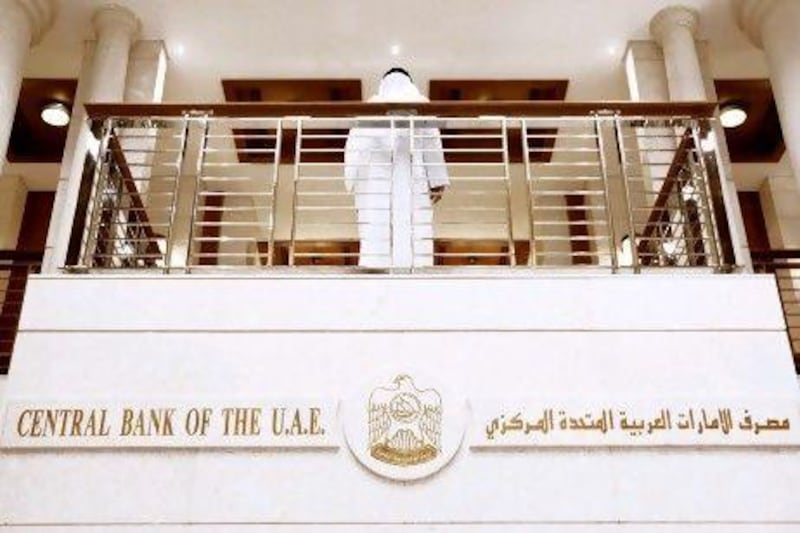The Central Bank plans to launch a discount facility to enable banks to borrow funds cheaply if the global downturn worsens.
It will make short-term loans, either overnight or through the day, to help lenders when market funding is expensive or hard to access.
"This facility will improve liquidity management practices within the UAE and support money markets if there are liquidity shortfalls," the Central Bank said in a report released yesterday.
"It will also support the development of collateralised debt markets and long-term capital market as commercial banks will be inclined to invest in securities that are defined as eligible securities - this process will facilitate the implementation of Basel III liquidity standards."
Banks will be able to sign up to the service, known as a marginal lending facility (MLF), under the Central Bank's supervision, it said. It has drawn up its plans as signs of growth grinding to a halt around the world raise the risk of interbank markets freezing over.
Still, the benchmark three-month Emirates interbank offered rate (Eibor) was trading close to an eight-year low at 1.304 per cent yesterday,
The announcement of the planned facility was contained within the regulator's inaugural Financial Stability report, which assessed the health of the banking system and the wider eco- nomy.
It said the latest results of two stress tests, which it carried out on a bi-annual basis, were "satisfactorily passed" by all lenders concerned.
"The results show that banks hold enough capital buffers to address major stress scenarios which could result in significant deterioration in the quality of their loans and advances," it said.
The regulator did not publish more detailed results of the tests.Under the first scenario economic conditions deteriorate and non-performing loans ratios rise from their current levels to 15 per cent of the total loan book, it said.
The second scenario involved non-performing loans from 50 to 100 per cent for each bank.
Lingering fallout from the global financial crisis and a downturn in the property market caused the ratio of soured loans across the banking sector to rise to an average of 7.2 per cent in December.
As banks are finalising major debt restructuring deals with various entities, bad loans will likely rise to reflect new terms and conditions, and peak at about an average 8 to 9 per cent, the report said.
Despite steadily emerging challenges in the global economy, the Central Bank sounded an optimistic note about the UAE eco-nomy.
"The prospects for 2012 are encouraging with the non-oil GDP growth expected to reach around 4 per cent," it said.
The overall economy may achieve better results than the IMF estimate of 3.5 per cent, it said. The economy expanded by 4.2 per cent last year, according to the National Bureau of Statistics.





